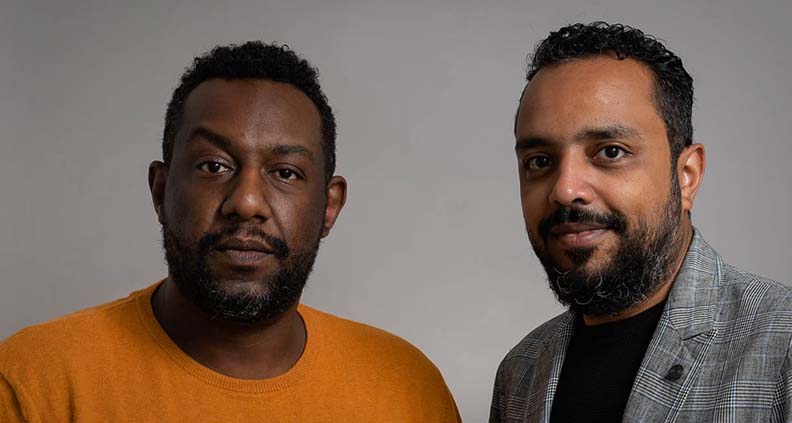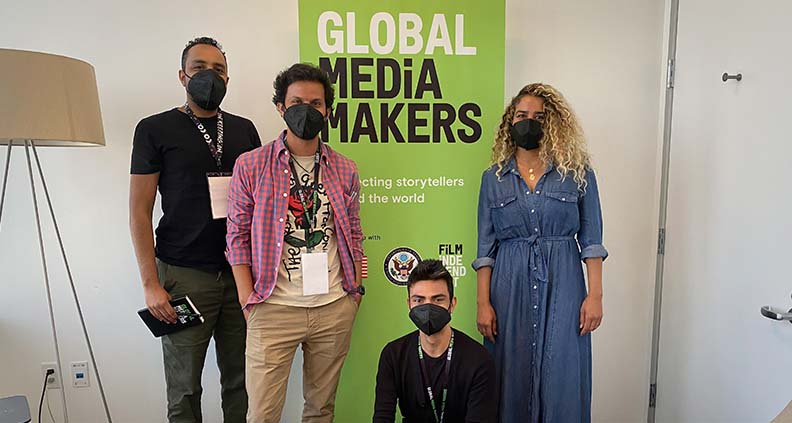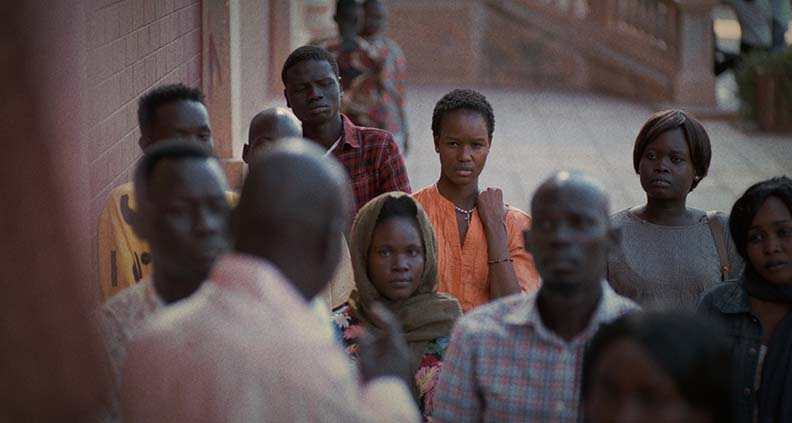The film–screening for free this Tuesday, December 12 as part of Film Independent Presents!–tackles the macro issues of racism, colorism and prejudice within Sudan while concentrating on the growing friendship between two women in Khartoum. The first Mona (Eiman Yousef) is a privileged Sudanese housewife of Arab descent. The other, Julia (Siran Riak), is a poor woman originally from South Sudan and of African descent who ends up being her maid.
Like an Asghar Farhadi parable (one of Kordofani’s favorite filmmakers), Goodbye Julia starts with an accident that puts the two characters on an emotional and physical collision course. The accident is merely a catalyst for the writer-director to slowly unravel his protagonists’ inner thoughts and hidden characteristics while dismantling the lies that most Arab Sudanese tell themselves about equality and morality within their ranks. Mona is married to a man, Akram (Nazar Goma), who provides and protects but doesn’t support her career aspirations to become a singer. Julia finds herself widowed and struggling to take care of her young son. The job Mona offers Julia becomes the start of a friendship that both women need. They become each others’ biggest advocates and, in the process, Mona begins to question the inherent racism she never thought of before. Kordofani says that Mona’s journey shadows his own. “I think 20 years ago I was a typical conservative, Sudanese man. I was a product of my society just like my father, my uncles and everybody around me. When the Southern Sudanese people voted for independence by 99% in 2011, that result was mind-boggling. It was one of the turning points where I realized that we are so racist. And becoming un-racist is not a button that you press, it requires an effort that requires that you check yourself. This transformation also mirrored my transformation from being an engineer to being an artist and this has significantly impacted my life. And in the film, you find Mona struggling to pursue her passion for singing despite what the community thinks.” An instrumental point in Goodbye Julia’s birth was when Kordofani connected with producer Amjad Abu Alala on social media. Abu Alala saw a short film Kordofani had made and recognized his talent. At the time Abu Alala was working on his own film as director, You Will Die at 20 (2019), and invited Kordofani to the set. That’s where the conversation about Goodbye Julia started. And now it is Sudan’s entry into the Academy Awards for Best International Film–just as You Will Die at 20 was four years ago. Says Abu Alala: “The Oscars are an opportunity to make more Sudanese stories.” Kordofani agrees: “This gives hope to the people who are trying to make cinema in Sudan. Whenever one of us makes it, we know that it’s possible, that there’s a way, there’s a path.” Kordofani and Abu Alala developed Goodbye Julia at Film Independent’s Global Media Makers LA Residency, where Kordofani was mentored by filmmaker Amman Abbasi (Dayveon and the upcoming The Quench). Abbasi says that working in the program is an “enriching” experience. “LA can be an insular film community and with Global Media Makers you get the multicultural aspects of what’s happening in cinema. Not only is it international cinema, but you also meet the next generation as they’re thinking through their new projects. A diaspora cinema club that decentralizes where movies come from, and the points of view.” Though Kordofani came up with a uniquely Sudanese story rooted in his own personal experiences, it can connect with audiences everywhere. “I think these are universal issues. These are universal tropes. The patriarchy is everywhere, racism is everywhere and friendship is everywhere. So even if you don’t understand the political situation in Sudan, it would not hinder your watching experience.” Goodbye Julia also proves prescient about the current situation in the country, where a violent conflict between two warring factions threw Sudan into a civil war that has been going on since last April. One of the characters predicts that war is coming. “I knew that the war would come because the same reasons that started the first war are still valid,” says Kordofani. “Since the inception of Sudan as a nation, we have had a national identity problem. We tried to force the Islamic Arabic identity on the whole country. We’re a big country, where there are people who are non-Arab. There are people who are not Muslim, and yet we are trying to force that just because we can.” Both Kordofani and Abu Alala remain steadfastly optimistic about the future of cinema in Sudan and take inspiration from Farhadi and other contemporary Iranian filmmakers. “Iranian cinema is unique for us because we look at it and see what can be accomplished despite all the red tape and restrictions,” says Abu Alala. “They have an Islamic regime, they are suffering as artists, as people. Like Sudan. Yet they still manage to make great cinema.” To learn more about Global Media Makers, click here. Global Media Makers is supported through a partnership between Film Independent and the U.S. Department of State’s Bureau of Educational and Cultural Affairs. Film Independent promotes unique independent voices, providing a wide variety of resources to help filmmakers create and advance new work. Learn more online and become a Member of Film Independent today.
More FilmIndependent…
YouTube Twitter Facebook Instagram Events Upcoming Events Newsletter


